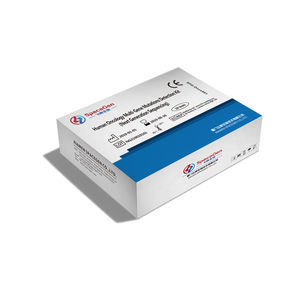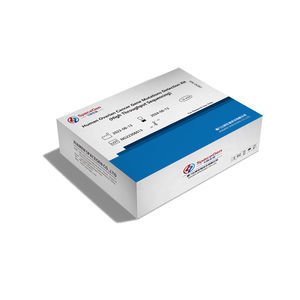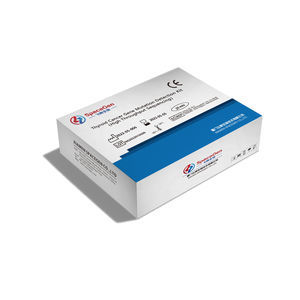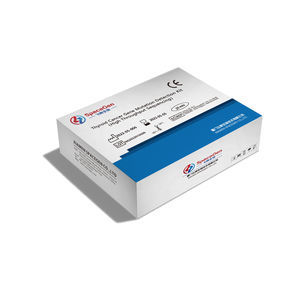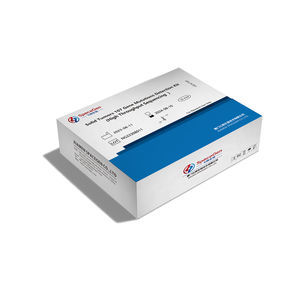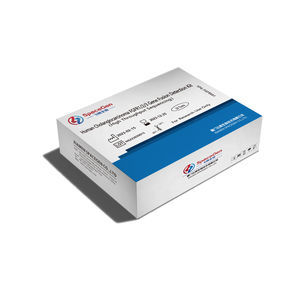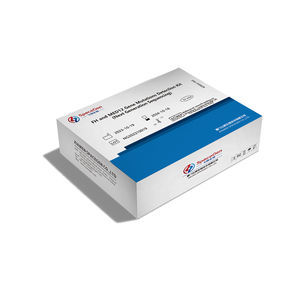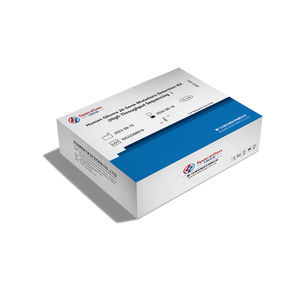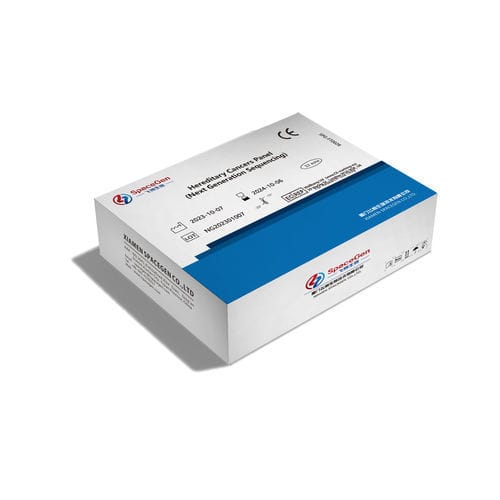

- Company
- Products
- Catalogs
- News & Trends
- Exhibitions
Research assay kit Knowcan®colorectal cancerfor breast cancerfor prostate cancer
Add to favorites
Compare this product
Characteristics
- Applications
- for research, colorectal cancer, for breast cancer, for prostate cancer, for heredity disease, for lynch syndrome, for prostate cancer
- Application field
- oncology
- Tested parameter
- genetic, lead
- Analysis mode
- for NGS sequencing
- Result display time
4 h
Description
Genetic factors play a crucial role in the risk of various cancers. Research indicates that hereditary cancer account for approximately 10% of all cancers, and these cancers often exhibit familial inheritance patterns[1] . Over 100 genes have been identified with genetic susceptibility, with the majority being cancer suppressor genes[2] . Hereditary cancers are mainly inherited through autosomal dominant inheritance, with a 50% probability of passing the pathogenic gene mutation from one generation to the next. Therefore, hereditary cancers often show a familial clustering pattern. Testing for hereditary cancer genes to determine if an individual carries relevant pathogenic mutations can help in selecting targeted treatment options for cancer patients and assessing the risk of developing other cancers. For high-risk populations, it is possible to assess cancer risk and develop feasible risk management strategies, achieving early screening, early detection, early intervention, and early treatment of cancers.
COMMON HEREDITARY CANCERS
Common hereditary cancers encompass various types of cancer, including breast cancer, ovarian cancer, gastric cancer, colorectal cancer, thyroid carcinoma, kidney cancer, and prostate cancer. For instance, mutations in MMR genes can lead to Lynch syndrome, which is associated with hereditary colorectal cancer. Mutations in HRR genes are related to hereditary breast and ovarian cancer syndrome (HBOC), as well as hereditary prostate cancer. The NCCN guidelines mention the need for genetic risk assessment for breast cancer, ovarian cancer, pancreatic cancer, and colorectal cancer, and there are corresponding risk assessment guidelines.
Catalogs
No catalogs are available for this product.
See all of SPACEGEN‘s catalogsRelated Searches
- Assay kit
- Blood assay kit
- Immunoassay assay kit
- Plasma assay kit
- Infectious disease detection kit
- Analysis software
- Molecular test kit
- Respiratory infection test kit
- Whole blood detection kit
- Optical assay kit
- Clinical assay kit
- Fluorescence assay kit
- Viewer software
- Real-time PCR test kit
- Research assay kit
- Laboratory software
- Windows software
- Laboratory detection kit
- Cell assay kit
- Oncology test kit
*Prices are pre-tax. They exclude delivery charges and customs duties and do not include additional charges for installation or activation options. Prices are indicative only and may vary by country, with changes to the cost of raw materials and exchange rates.


